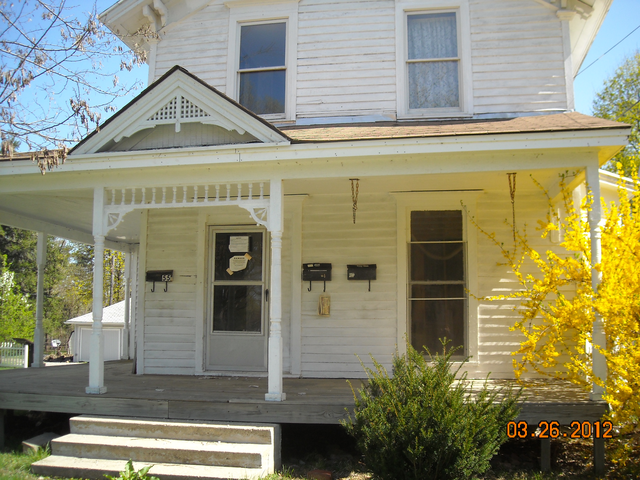
(Photo: Google Maps)
An estimated 63.2 percent of Hillsdale’s houses were built before 1960, according to a 2016 report by the Michigan Vacant Property Campaign, meaning keeping the houses around the city in good shape is costly to the city.
The Hillsdale Code Enforcement and Inspections department prevents houses from falling into dilapidation by enforcing the International Property Maintenance Checklist, a two-page list of common housing violations, and through use and occupancy permits.
“The idea is to call out minor housing issues with expectations to fix them. We either act on neighbor complaints or observation, and we give tenants three warnings before citing civil infractions,” Hillsdale Assessor Kim Thomas said.
Hillsdale requires houses to have a use and occupancy permit, renewed every two years by a Hillsdale Fire Department inspection. The permit can be revoked if property owners do not address city complaints.
If revoked, the tenants have to vacate the building, and the property owner can’t rent until the problems are fixed, and they get a new permit.
“This only happens when things have reached the point that no one is being cooperative, and no one is doing anything about the issue — it’s used as a last step,” Alan Beeker, Hillsdale Zoning Administrator said.
Houses declared public nuisances are usually unoccupied, and are given a period of time in which the owner must repair or demolish the house. Thomas said public nuisances can cause problems to adjacent properties, and detract from neighborhood property value.
“Public nuisance is when the structure has become not only a liability for the tenants, but also for those around it,” Beeker said.
Once the city declares a house a public nuisance, Hillsdale officials gives the owner a time frame either to fix the building or demolish it.
“We have no problem with someone wanting to repair a structure and make it habitable again; in fact, we would prefer it over an empty lot. But, it has to be done according to state building code,” Beeker said.
If the owner does nothing, he will be ordered by a judge to take care of the problem, and, upon nonaction, the city will act to repair or demolish it.
“If your neighbor doesn’t take care of his house, then you start to be less willing to take care of your own. It’s the idea that one bad apple spoils the bushel, and as that grows, you reach entire blighted neighborhoods — it’s a domino effect, as seen in Detroit,” Thomas said.

